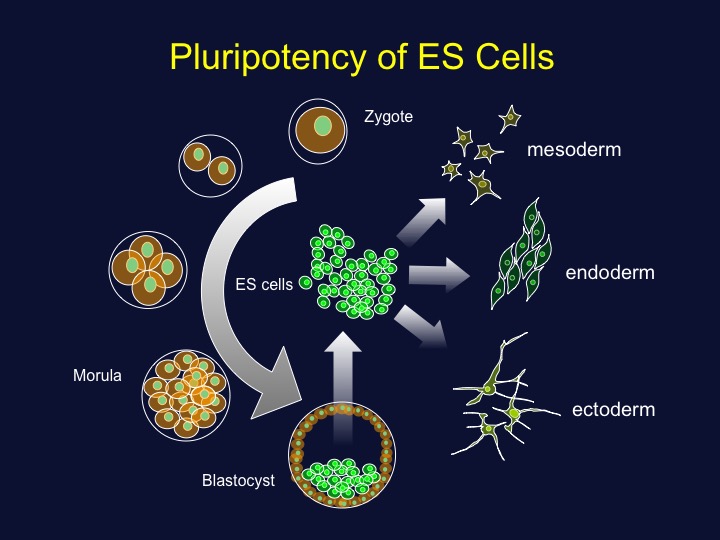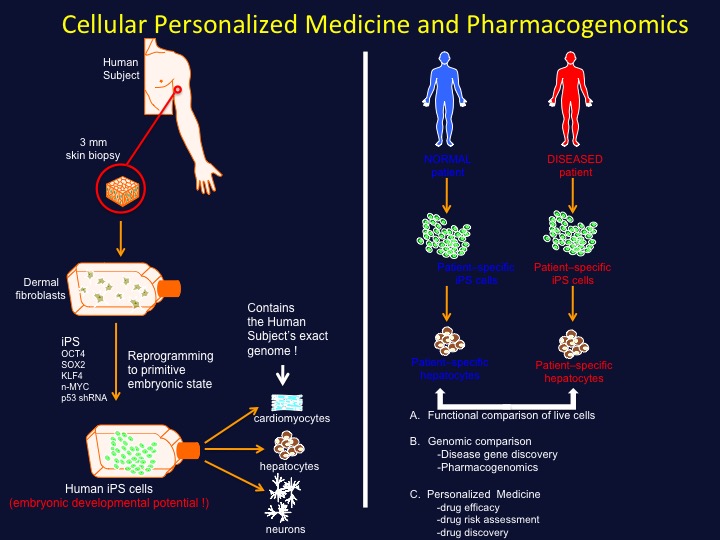A. ES Cell Pluripotency

B. Using iPS cells for personalized medicine

We use stem cells for the production of specialized human cell types to learn about human disease mechanisms. This is possible since embyronic stem cells (ES cells) (A) can be coaxed to differentiate into primitive cells of endodermal, mesodermal, and ectodermal lineages, and then to highly differentiated cell types (in principle all the cell types present in the adult human). These cells can be used to study human disease mechanism directly in relevant, genetically normal human cell types, and are in general superior to transformed human cells and animal models.
We also use induced pluriopotency (iPS) technology to produce reprogrammed human stem cells from specific patients, which allow us to model human genetic disorders in vitro, and also to explore personalized medicine, variations in human physiological states, and individualized responses to pharmaceutical (B). This is a powerful approach since iPS cells are derived from specific individual patients, and harbor the unique genome of each patient.